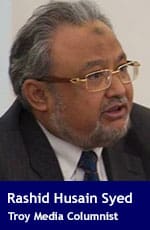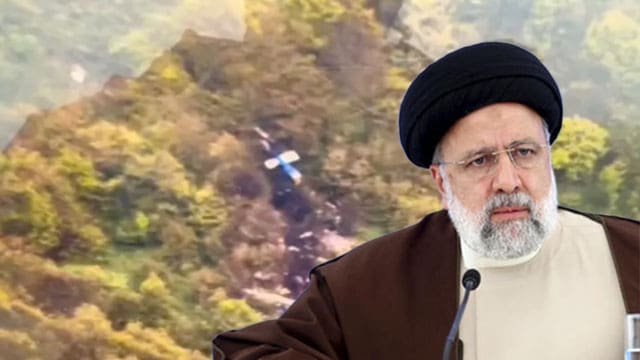But if any perception of Israel’s involvement in the incident develops, oil markets could go berserk
 Crude markets are closely monitoring the aftermath of the helicopter crash that killed Iranian President Ebrahim Raisi and his foreign minister Hossein Amirabdollahian on Sunday. Eyes also remain glued on the geopolitical developments in the region following their deaths.
Crude markets are closely monitoring the aftermath of the helicopter crash that killed Iranian President Ebrahim Raisi and his foreign minister Hossein Amirabdollahian on Sunday. Eyes also remain glued on the geopolitical developments in the region following their deaths.
The deaths have already introduced another layer of uncertainty, leading to increased volatility in the crude markets. If geopolitical factors come into play, they will add further volatility to the oil markets in the coming days and weeks. However, for now, oil prices remain rangebound.
As markets opened Monday, Brent crude prices jumped by 41 cents, or 0.5 percent, to US$84.39 per barrel. It even hit US$84.43 earlier, marking its highest point since May 10. Similarly, U.S. West Texas Intermediate (WTI ) crude for June rose by 23 cents to US$80.29 per barrel after peaking at US$80.35, the highest since May 1. The more active July contract also climbed 31 cents, or 0.4 percent, to US$79.89.
 Iranian President Ebrahim Raisi, pictured, and foreign minister Hossein Amirabdollahian died in a helicopter crash on Sunday. |
| More from Rashid Husain Syed |
| Trump promises to reverse Biden’s environmental rules
|
| IEA predicts electric vehicle sales will surge by 20 percent
|
| The oil industry is not dead yet
|
However, the markets soon stabilized. Brent futures fell to US$83.96 a barrel by 11:10 a.m. EDT, while U.S. West Texas Intermediate (WTI) registered a small jump to US$80.11.
Besides the death of President Raisi, markets have also disregarded news about the health of King Salman of Saudi Arabia, the world’s top crude oil exporter. The 88-year-old monarch is unwell, prompting Saudi Crown Prince Mohammad Bin Salman to postpone his visit to Japan.
For now, oil markets are more focused on potential changes in U.S. interest rates. Oil prices eased after U.S. Federal Reserve officials reportedly stated on Monday that they were waiting for more evidence of declining inflation before the central bank would begin cutting interest rates.
Two top Fed officials told the media they’re not yet ready to declare that inflation trends are moving sustainably back to the central bank’s two percent target.
Yet, there remains a definite possibility that the death of Raisi could spark further tension and instability in the volatile Middle East, especially if Israel or any other foreign country appeared involved in the plot to kill him. That remains a big question.
The U.S. has already clarified its position publicly. “The United States had no part to play” in the crash that killed Iranian President Ebrahim Raisi and other Iranian officials, Defense Secretary Lloyd Austin said at a news conference Monday.
Around the same time, the United States expressed official condolences for the deaths of Raisi, Iranian Foreign Minister Hossein Amir-Abdollahian and others in the helicopter.
“As Iran selects a new president, we reaffirm our support for the Iranian people and their struggle for human rights and fundamental freedoms,” State Department spokesman Matthew Miller said in a statement.
A U.S. official, speaking on the condition of anonymity to discuss Washington’s assessment of what happened, said the crash appears to have been an accident, not foul play.
Iran is yet to blame any other foreign power for the incident. At this point, Iranians are officially treating the incident as an accident. Yet, conspiracy theories are beginning to circulate online, with many pointing to Israel.
Israel has been quick to deny any involvement, and on Monday, an Israeli official told Reuters: “It wasn’t us.”
But if any perception of Israel’s involvement in the incident develops, markets could go berserk. That could be catastrophic from a geopolitical perspective. If that happens, the region would be destabilized further, and oil markets could go up in flames.
For now, it is not the case, but it cannot be completely ruled out. The next few days and weeks will be decisive.
Let’s keep our fingers crossed.
Toronto-based Rashid Husain Syed is a highly regarded analyst specializing in energy and politics, with a particular emphasis on the Middle East. In addition to his contributions to local and international newspapers, Rashid frequently lends his expertise as a speaker at global conferences. Organizations such as the Department of Energy in Washington and the International Energy Agency in Paris have sought his insights on global energy matters.
For interview requests, click here.
The opinions expressed by our columnists and contributors are theirs alone and do not inherently or expressly reflect the views of our publication.
© Troy Media
Troy Media is an editorial content provider to media outlets and its own hosted community news outlets across Canada.

